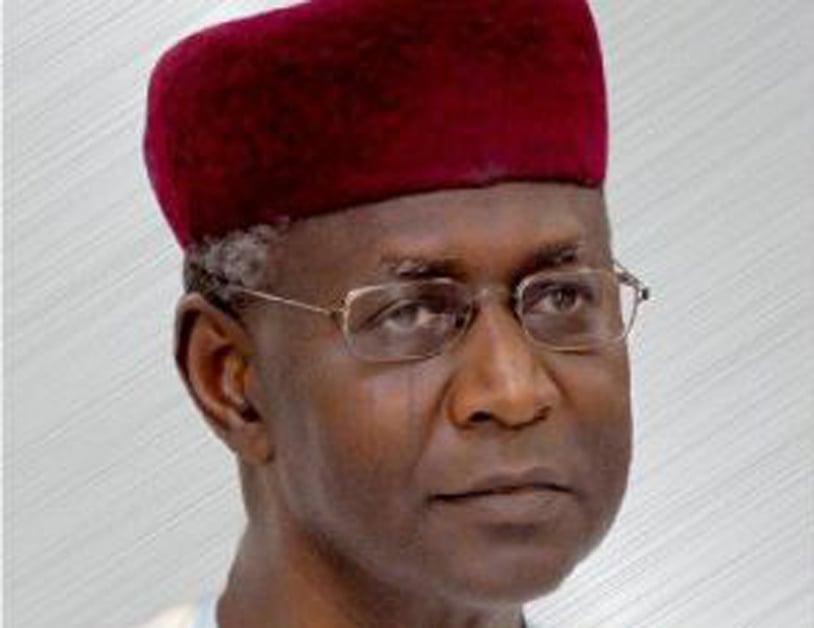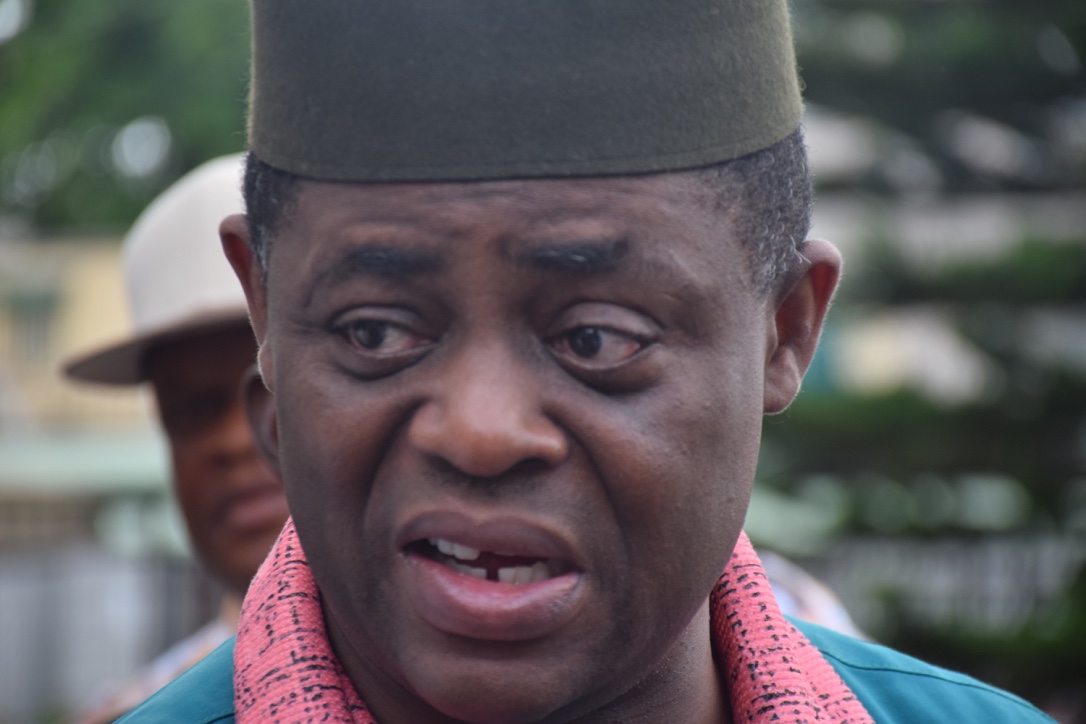BY SUNDAY A. AKINTAN
In THISDAY newspaper publication of Tuesday 24 March, 2020 (Lawyer Pull-out page 5), it is reported that Mr. Femi Falana, SAN, said that “all election petitions and pre-election matters should be handled by retired Judges”. He went further to say that “doing this would help the courts, which have been turned into a theatre of war by politicians.” The learned SAN was said to have made the observation in the second annual memorial lecture he delivered in honour of that distinguished lawyer, late Pa Tunji Gomez, at the foyer of the High Court, Igbosere, Lagos, the previous Wednesday.
Mr. Femi Falana SAN, is not just a Senior Advocate of Nigeria, he is a no-nonsense top Silk whose views and pronouncements carry much weight having regard to his very deep knowledge of the law, frank views on national issues and someone who is well known for his fearless defence of the down trodden. His views on any matter therefore are bound to be taken very seriously. But the question of how the decision on the current practice of using serving Judges (and magistrates) to try election petitions and pre-election matters was arrived at was not a legal matter and as such a brilliant lawyer may not necessarily know it.
The truth is that some retired Judges were used initially when we started democratic rule in 1978. But the practice had to be abandoned when it was discovered that there was no adequate means of disciplining any erring retired Judge employed for such duties. This was because such retired Judges had nothing to lose other than being removed from such duties. The decision was then taken to rely on the use of serving Judges who could be subjected to serious disciplinary actions, including dismissal from service.
The number of election petitions was not as many as they are nowadays. The reason for this was that there was still a lot of discipline in the system which the nation inherited from our Colonial rulers regarding actions of public officers. But as we progressed, it was found that public offices became places where some incumbents could amass wealth illegally and get away with their crimes. Contests for political offices therefore became very attractive in that once you got one, you would automatically join the very wealthy class in the society. The contests for every political office, be it at the local government level, State House of Assembly or at the National Assembly, became a do or die affair. The question of conceding defeat was therefore never in consideration by any of the contestants. Members of the legal profession soon joined by reaping in the fat briefs emanating from the court litigations. While these were going on, it was even alleged that some of the counsel went ahead to charge the amounts meant for bribing the Judges handling the election petitions in addition to their normal fees.
The number of election petitions started to increase at an alarming rate. My last posting in the Court of Appeal was in Port Harcourt where I was the Presiding Justice. In March 2004 when I moved from there to the Supreme Court, the number of the election petition appeals was almost equal to that of the regular appeals we had in the Division. The number has grown tremendously since then all over the country. High Court Judges retire on attainment of the age of 65 years while those in the Court of Appeal and the Supreme Court retire at 70 years. The number of retired Judges and Justices of the High Courts, Court of Appeal and the Supreme Court who are able is definitely too few to cope with the large number of election petition appeals now arising from elections and pre-election matters.
The 1999 Constitution established the National Judicial Council (NJC) which is empowered, among others, to discipline all Judicial officers in the country. That body has in fact disciplined many Judges found wanting, particularly in their handling of election cases. Retired Judicial officers are not covered by the disciplinary powers conferred on the NJC. If therefore, the retired Judicial Officers are brought back to handle election petitions, their misconducts could not be brought before the NJC. I had the privilege of serving as a member of the NJC for 5 years since my retirement from the Supreme Court bench. During that period, I took part in many of the in-house trials of Judicial officers accused of misconduct. What I discovered was that most of the Judicial Officers were very conscious of the disciplinary powers of the NJC and would, as much as possible, conduct themselves in such a manner that would not lead them to being dragged before the Council. I therefore believe that there is totally no reason to do away with the present practice by calling on retired Judicial Officers to take over their role. The reason for the request by Mr. Falana was to avoid the court being “turned into a theatre of war by politicians”. Under the present system, the NJC is available to discipline any panel that would allow its panel to be unnecessarily “turned into a theatre of war”. But that role may not be available to NJC if the panels are made up of retired Judicial Officers who are no longer under the disciplinary control of the NJC. Another important point to be considered is that it may be impossible to find enough retired Judicial officers who are still fit and capable of coping with the number of election petitions that now arise from the elections in Nigeria. The present system should therefore be allowed to continue.
Our main problem in Nigeria is that one by one we shed off practices we inherited from our Colonial masters and replace them with practices that lead to inefficiency and chaos. Among the discarded practice in the Judiciary is one by which criminal matters were speedily tried and concluded by holding Assize Sessions four times yearly where all criminal cases arising within a quarter were listed before an Assize Session and cleared within the session. By that practice, there were no accumulations of people awaiting trials in our prisons. When I started my career as a Federal State Counsel in the Federal Ministry of Justice, I prosecuted cases before Assize Sessions in Lagos. When I became a High Court Judge, I also presided over Criminal Assize Sessions many times until I was elevated to the Court of Appeal in 1989. But I was surprised to hear from many of the State Chief Judges I interacted with while I was a member of NJC to learn that many of them knew nothing about holding Assize Sessions. Similarly, the practice of holding criminal trials from day to day until completed and the counsel for the parties would address Court; thereafter the case would then be adjourned for judgement, has been discarded. What happens nowadays is that trial of a criminal case could last for years because counsel would prevail on the trial court to grant adjournments for various reasons which were never available during Assize Sessions. In many of the cases, the trial Judges would be bullied to succumb to their requests by Senior members of the Bar with the threat that they would report them for disciplinary action by the NJC.
I remember a trial which I presided over while I was a member of the NJC. The case involved allegations of misconduct against a panel of Justices of the Court of Appeal. At a stage during the trial, one of the Counsel sought for an adjournment on the ground that one of the Justices being tried wanted to travel abroad for a daughter’s wedding. At first, I ignored the request, pretending as if I did not hear him. When he repeated the request, I said in reply that since the Judicial Officer needed the permission of the CJN to travel outside the country, the application had to be supported by the CJN’s permission granted in support of the request and addressed to our panel. That was the end of the request. This is because members of an NJC panel were from different parts of the country and every panel had time limit within which to submit its report to the Council. Applications for adjournments were therefore rarely granted.
Another unnecessary clog to quick completion of criminal trials was the recent amendment to the court Rules of Court by which counsel for the parties are to submit their final addresses in writing. Counsel A would, by the new Rule, be given time to file his final address and serve Counsel B, who would then prepare his reply and file same. A date would then be given for them to come and adopt their addresses and the case would then be adjourned for judgement. This practice creates an unnecessary prolongation of trials. In the old practice, writing briefs was unknown in trials at the High Court Level – be it in criminal or civil trials. The introduction of this practice led to delays in completing trial in the courts.
The changes made in respect of appointments of Judges to the High Court benches resulted in not attracting the best materials to the Bench. By this new arrangement, the posts to be filled are to be advertised and interested candidates are required to apply. Short-listed candidates are required to sit for an examination, followed by an interview. Since the introduction of this practice, I doubt if any Senior Advocate of Nigeria has ever applied for such jobs because they regard the process as insulting. In the past, the Judges who knew the competent lawyers were the ones who would nominate very good lawyers for such appointments. This practice was discarded for the present practice that lower the standard of those coming for the recruitments.
Finally, I suggest that pressure should be put on the authorities to build courts in or close to our existing large prisons so that trials of people awaiting trial in the prisons are carried out by both High Court Judges and Magistrates within the courts halls built in or around the prisons thereby doing away with having to transport the prisoners to Courts which may be far away from the prisons and, in most cases, the prison authorities might not have serviceable vehicles to do so. Efforts should also be made to revert to the old systems that worked well but were jettisoned without good reasons. It is also necessary to emphasise that the Judiciary holds the main role of instilling discipline into the society. This can be achieved by quick trials of people brought before the courts for breaches of the law, thereby preventing the manifestation of acts of impunity or rewarding lawlessness. Happily, results of some criminal trials recently published, led to convictions of some top politicians for fraud. These are indications that rushing into politics with a view to amassing wealth fraudulently may lead to severe results they never contemplated. The fact that there are many more of such cases still pending in the courts and many are yet to be filed, are indications that the courts can still successfully achieve its role of bringing sanity to our society. Similarly, the clamp down by the security agencies on a number of legal practitioners said to be involved in corrupting Judicial Officers, leading to some prosecutions, will definitely have the effect of ending or seriously curtailing that practice.
Advertisement
Justice Akintan is retired supreme court judge.
Views expressed by contributors are strictly personal and not of TheCable.
Add a comment






